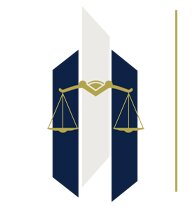Best Toxic Tort Lawyers in Bloemfontein
Share your needs with us, get contacted by law firms.
Free. Takes 2 min.
List of the best lawyers in Bloemfontein, South Africa
About Toxic Tort Law in Bloemfontein, South Africa
Toxic tort law refers to legal claims involving harm caused by exposure to dangerous chemicals, substances, or environmental toxins. In Bloemfontein, as in the rest of South Africa, these cases often arise when individuals or groups allege injury due to the release or misuse of hazardous materials from industrial activities, improper waste disposal, pollutants, or contaminated products. Toxic tort law intersects with environmental, health and safety regulations, and product liability rules. It is a complex field because proof of exposure, causation, and harm can be scientifically and legally challenging.
Why You May Need a Lawyer
Toxic tort cases are notoriously complex due to the scientific evidence required, the need to establish direct connections between substances and health impacts, and the involvement of powerful corporations or governmental bodies. You may need a lawyer if you:
- Experience health issues suspected to be linked to environmental pollution from a nearby factory or industrial facility.
- Work in an environment where hazardous chemicals are present and suffer from unusual illnesses or injuries.
- Suspect diseases or symptoms in your community are caused by contaminated water, soil, or air.
- Have purchased products containing unsafe toxic substances causing harm.
- Are part of a class or community affected by a toxic event, such as chemical spills or hazardous waste dumping.
- Seek compensation for medical bills, lost wages, or diminished quality of life linked to toxic exposure.
- Face legal action or regulatory attention as a business accused of toxic tort liability.
Local Laws Overview
Several national and provincial laws impact toxic tort claims in Bloemfontein and the broader Free State province. Key aspects include:
- National Environmental Management Act (NEMA): Sets forth the framework for environmental protection, including liability for pollution and environmental damage.
- Occupational Health and Safety Act: Regulates employer responsibility for worker safety with regard to chemical and hazardous exposure in workplaces.
- Consumer Protection Act: Provides rights for consumers harmed by unsafe products, which can cover toxic product liability claims.
- Common Law Principles: South African law enables individuals to pursue civil lawsuits for damages caused by negligence or nuisance, including injuries due to toxic exposure.
- The burden of proof rests on the claimant to show a direct link between the toxic substance and the harm suffered, often requiring expert evidence.
- Class actions may be available for groups affected by the same toxic event but are governed by strict rules and must be certified by the courts.
- There are time limits (prescription periods) within which claims must be lodged, typically three years from when harm is discovered.
Frequently Asked Questions
What is a toxic tort?
A toxic tort is a legal claim for personal injury or property damage resulting from exposure to toxic substances, such as chemicals, pollutants, or hazardous waste.
What types of toxic substances are commonly involved in these cases?
Common substances include industrial chemicals, pesticides, asbestos, lead, contaminated water or soil, and emissions from factories or mines.
Can I claim compensation for illnesses caused by long-term exposure?
Yes, you may be able to claim if you can show that your illness is directly related to long-term exposure to a toxic substance and identify the party responsible.
How do I prove my illness is caused by a toxic substance?
Proof typically requires medical diagnosis, scientific evidence linking the toxin to your illness, records of exposure, and sometimes expert witness testimony.
What steps should I take if I suspect toxic exposure?
Seek immediate medical attention, document your symptoms and potential sources of exposure, collect any relevant evidence, and contact a legal professional experienced in toxic tort cases.
Who can be held liable in a toxic tort case?
Parties that may be liable include manufacturers, industrial companies, landlords, property owners, employers, and sometimes government entities responsible for regulation.
Is there a time limit to file a toxic tort claim?
Yes, generally you must file a claim within three years from when the injury or its cause is discovered, but prompt action is recommended as rules can be complex.
What type of compensation can I receive?
You may be eligible for compensation for medical costs, lost income, pain and suffering, property damage, and, in cases of gross negligence, punitive damages.
Can a group or community file a toxic tort claim together?
Yes, class actions or group litigation may be available if many individuals are affected by the same cause; this can strengthen the case and pool resources.
Do I need a specialist lawyer for toxic tort cases?
Due to their complexity, it is highly advisable to consult a lawyer who has experience and expertise in toxic tort or environmental law in South Africa.
Additional Resources
Here are some helpful resources and organizations for individuals seeking advice or assistance:
- South African Human Rights Commission - for environmental justice concerns.
- Legal Aid South Africa - for those who cannot afford private legal representation.
- Department of Environmental Affairs - provides information on regulations and reporting pollution events.
- Free State Department of Economic, Small Business Development, Tourism and Environmental Affairs - provincial contact for environmental issues in Bloemfontein.
- South African Society for Environmental Law and Policy - information and potential referrals for specialist lawyers.
- Local university law clinics, such as the University of the Free State Law Clinic, for legal advice and representation.
Next Steps
If you believe you have a toxic tort case, consider the following steps:
- Document your symptoms, suspected sources of exposure, and any evidence (e.g., photographs, medical records, samples).
- Seek prompt medical attention and obtain detailed records of your diagnosis and treatment.
- Contact a lawyer or legal clinic with expertise in toxic tort or environmental law in Bloemfontein for an initial consultation.
- Report any environmental concerns to local authorities, such as the Department of Environmental Affairs or the South African Human Rights Commission.
- If part of a larger affected group, discuss the case with other community members to consider a potential class action.
- Be mindful of time limits (prescription periods) for lodging claims and act as soon as you suspect harm from toxic exposure.
Lawzana helps you find the best lawyers and law firms in Bloemfontein through a curated and pre-screened list of qualified legal professionals. Our platform offers rankings and detailed profiles of attorneys and law firms, allowing you to compare based on practice areas, including Toxic Tort, experience, and client feedback.
Each profile includes a description of the firm's areas of practice, client reviews, team members and partners, year of establishment, spoken languages, office locations, contact information, social media presence, and any published articles or resources. Most firms on our platform speak English and are experienced in both local and international legal matters.
Get a quote from top-rated law firms in Bloemfontein, South Africa — quickly, securely, and without unnecessary hassle.
Disclaimer:
The information provided on this page is for general informational purposes only and does not constitute legal advice. While we strive to ensure the accuracy and relevance of the content, legal information may change over time, and interpretations of the law can vary. You should always consult with a qualified legal professional for advice specific to your situation.
We disclaim all liability for actions taken or not taken based on the content of this page. If you believe any information is incorrect or outdated, please contact us, and we will review and update it where appropriate.









